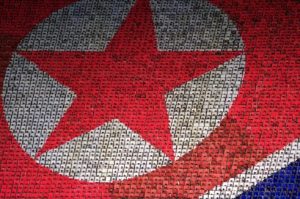By: Max Wallace

“You have a friend for life,” Dennis Rodman proclaimed to North Korean dictator Kim Jong-un when he visited the leader’s country. The former NBA star and would be diplomat evidently finds the Supreme Leader quite agreeable. Unfortunately, North Korea’s recent actions have caused the international community to reject Rodman’s assessment. After yet another nuclear test last month, and the near universal censure which followed it, North Korea has now threatened to end the 1953 armistice that marked the conclusion of the Korean War. The world now finds itself faced with a tricky and potentially highly dangerous question. Just how far can Kim Jong-un be pushed before he feels the need to take drastic action?
Historically, many of North Korea’s threats have been empty bluster, but given North Korea’s current situation, this newest round of declarations may be decidedly more credible than those delivered by his predecessors. Kim Jong-un finds himself in the precarious position of being nearly universally opposed abroad, even by China, his nation’s longtime ally. Furthermore, Kim has been in power for little more than a year and presumably has to contend with the only other potent force within the government besides himself: military hardliners. Given these circumstances, it is not surprising that Kim views a nuclear weapon as his salvation. If he
The West is resolute, however, in its unwillingness to allow North Korea to establish nuclear capabilities. With President Obama already contending with the threat of a nuclear Iran and the instability in Pakistan, he can hardly allow North Korea to advance its nuclear program further. China would undoubtedly prefer the Kim dynasty to remain in power for fear of the influx of Korean refugees that would follow a collapse. Despite this, China recognizes their southern neighbor’s behavior as erratic and realizes that were North Korea to obtain a nuclear weapon, tensions would escalate to unmanageable levels. Currently, the UN seems poised to enact another round of sanctions against the rogue state, but if Kim were to end the armistice and take military action against South Korea, which has American troops stationed along the demilitarized zone (DMZ), the United States would be forced to retaliate.
If Kim were to engage in hostilities, he would be starting a war he could not possibly win, but the damage that such a conflict would inflict on the area would be catastrophic. The industrialized and heavily developed south would be demolished by northern artillery and Seoul would be flattened. The people of North Korea, already starving, would be forced to flee their homes in the ensuing chaos. War is the last thing that either side of this conflict wants. The best-case scenario would be for China to persuade the North Korean regime to back down off of their threats, or for the UN to further incentivize compliance with their nuclear regulations. Perhaps rather than pursuing stricter sanctions which seem to be backing the dictator into a corner, the international community should offer to engage more readily in trade should Kim agree to dismantle his nuclear program to the satisfaction of inspectors. All efforts have to be exhausted in an attempt to persuade North Korea to return to the bargaining table. The closer that the Korean peninsula moves towards war, the more difficult it will be for peaceful intervention to remain an option to stabilize the area.
The United States and its allies find themselves facing down a man who feels his survival is threatened. Kim Jong-un must either be appeased or coerced into compliance with nuclear regulations, elsewise a conflict that has lain dormant for decades could be reignited with dire repercussions. With the staging of joint U.S. and South Korean military exercises this week, tensions appear to be coming to a head, and it may well take more than Dennis Rodman and a basketball match to defuse the situation.

